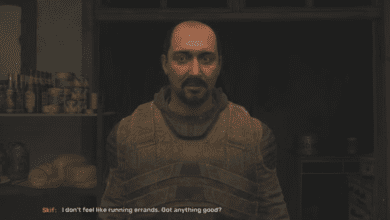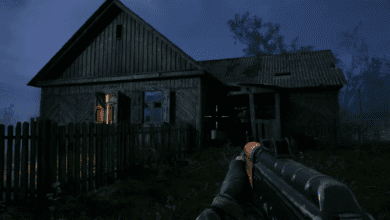10 Strange Reasons Why Popular TV Shows Were Cancelled
Television can be a ruthless world, where even fan-favourite shows are abruptly pulled off the air, leaving audiences frustrated and confused. Each year, countless beloved series find themselves on the chopping block, often without a proper conclusion. Sometimes, it’s about money and ratings, but for other shows, the reasons behind their cancellation are downright bizarre. In this article, we’ll explore 10 strange and unexpected reasons why popular TV shows met an untimely end.

1. Disney’s 65-Episode Rule Cancelled “Even Stevens”
Disney has always played by its own rules, and in the case of many successful shows, that rule was the infamous 65-episode limit. Despite the popularity of shows like Even Stevens, Disney enforced a mandate where no show could go beyond 65 episodes, no matter how well it performed. The reason? Disney wanted to syndicate the shows easily by creating enough content for a 13-week schedule, airing one episode each weekday. Once this quota was met, shows were cycled through repeatedly, maximizing profits with minimal new content. Unfortunately, Even Stevens, a show with growing popularity, became one of the biggest victims of this policy, leaving fans wanting more.
2. “Firefly” Was Killed by Terrible Network Decisions
Few TV cancellations have sparked as much outrage as Firefly, a cult-favourite sci-fi western that was axed after just one season. It wasn’t the show’s quality that was the issue; instead, the blame fell squarely on Fox’s poor handling of the series. In a mind-boggling decision, the network aired episodes out of order, making it hard for audiences to follow the plot. Combine that with lacklustre marketing and an unpredictable airing schedule, and it felt like Fox was setting the show up to fail. Unsurprisingly, Firefly was quickly cancelled, but its passionate fan base ensured that its legacy lived on through reruns, conventions, and even a movie.
3. The Destruction of “Batman” Sets Sealed Its Fate
The 1960s Batman TV series is a cultural icon, remembered fondly for its campy take on the Caped Crusader. Despite its success, the show was cancelled after only three seasons. ABC, the network airing Batman, decided to pull the plug due to a drop in ratings. However, there was hope on the horizon when NBC showed interest in picking up the series. Unfortunately, ABC had already destroyed the Batman sets to make room for new productions. When NBC saw the cost of rebuilding the iconic sets from scratch, they passed on the opportunity, and Batman was left without a lifeline.
4. “Who Wants to Marry a Multi-Millionaire?” Was a Complete Farce
Reality TV was in its infancy when Who Wants to Marry a Multi-Millionaire? hit the airwaves, but it didn’t take long for it to crash and burn. The show’s premise was as ridiculous as its execution: a group of women competed to marry a mystery man, advertised as a multi-millionaire. The ratings were huge, but soon after, the show faced a major scandal. It turned out that the “millionaire” wasn’t nearly as wealthy as he claimed. To make matters worse, he had a dark past, with allegations of domestic abuse surfacing after the show aired. Unsurprisingly, Who Wants to Marry a Multi-Millionaire? was swiftly cancelled, and no one really missed it.
5. Netflix’s Reluctance to Renew Old Shows Axed “Ozark”
Netflix has become known for its willingness to cancel shows, even popular ones, seemingly out of nowhere. The reason? New subscribers. Shows like Ozark fell victim to Netflix’s policy of prioritizing fresh content over older series. Reports suggest that Netflix doesn’t gain much from shows that last beyond three or four seasons, as they don’t attract as many new subscribers. While Ozark had a devoted following, it wasn’t the kind of show that would bring in waves of new users after multiple seasons. As a result, despite its critical acclaim, Netflix decided not to renew it beyond its fourth season.
6. “Police Squad!” Was Too Clever for Its Own Good
The creators of Police Squad! the precursor to The Naked Gun movies, probably never expected that their show would be cancelled for having “too much comedy.” Yet, that’s exactly what happened. The show was packed with rapid-fire jokes, slapstick humour, and clever wordplay, all of which required viewers to pay close attention. Incredibly, ABC’s president at the time claimed that the show’s failure was due to audiences needing to “actually watch it” to appreciate the humour. In an era where TV execs preferred broad-appeal shows that required minimal attention, Police Squad! was simply too smart for its own good and was axed after just six episodes.
7. “Robin Hood” Lost Its Lead and Its Audience
BBC’s Robin Hood may not have been groundbreaking, but it offered solid Saturday night entertainment. The show took some bold narrative risks, such as killing off the beloved character Maid Marian in the second season. While this caused quite a stir, it didn’t bode well for the series long term. Things got even worse when Jonas Armstrong, who played Robin Hood, decided to leave after the third season. With the titular character gone and viewership dwindling, the BBC opted not to push forward with a fourth season, leaving the tale of Robin Hood hanging.
8. “Designated Survivor” Couldn’t Keep Its Cast Together
When Designated Survivor moved from ABC to Netflix for its third season, many fans hoped for a fresh start. Unfortunately, Netflix ran into a major problem: they hadn’t locked down the cast. Unlike traditional network contracts, Netflix failed to secure long-term deals with key actors, and as a result, many of them took other jobs. According to star Kiefer Sutherland, this meant that even though the show could have continued, it didn’t make sense to do so without its main cast. As the actors moved on, so too did the opportunity for more seasons of Designated Survivor.
9. “Young Justice” Was Cancelled Over Toy Sales
Despite strong ratings and a loyal fanbase, Young Justice was cancelled after just two seasons on Cartoon Network. The show was praised for its writing and character development, but behind the scenes, it had a major issue: toy sales. Young Justice was financially backed by toy company Mattel, and when the toys weren’t selling as expected, the funding dried up. Fans of the show were devastated, especially since it was performing well in every other aspect. However, without lucrative toy sales to support it, Young Justice was shelved until a fan-driven revival years later.
10. The O.J. Simpson Trial Pre-empted “Gargoyles”
Perhaps the strangest reason for a show’s cancellation belongs to Gargoyles. This beloved animated series fell victim to one of the biggest media events of the 1990s: the O.J. Simpson trial. As the trial dominated TV screens across the country, episodes of Gargoyles were frequently pre-empted for live trial coverage. With viewers missing episodes and losing interest, the show’s ratings plummeted. Ultimately, this led to its cancellation. According to the show’s creator, Greg Weisman, the constant interruptions caused many fans to fall out of the habit of watching, sealing Gargoyles’ fate.
These cancellations may seem outrageous, but they highlight the unpredictable nature of the TV industry. Whether it’s bizarre network policies or external events beyond anyone’s control, even the most popular shows can meet an untimely end for reasons that leave fans scratching their heads.





